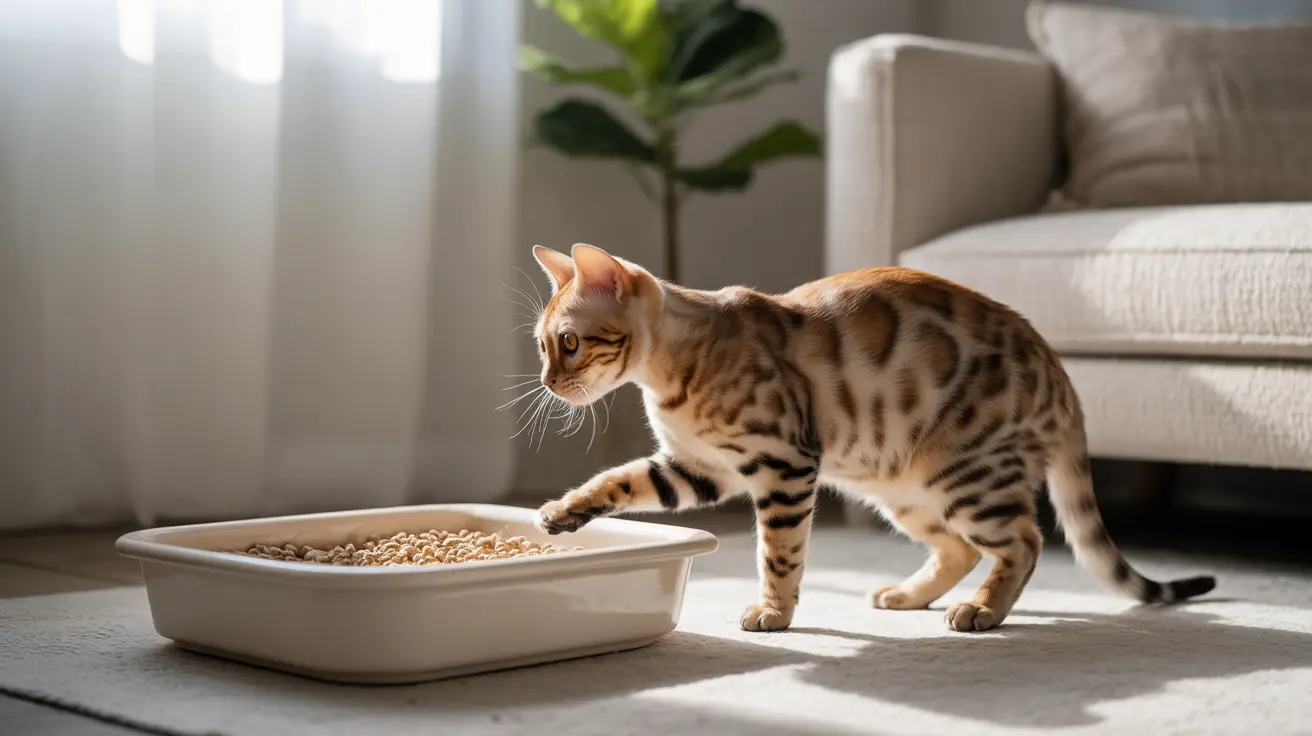If you've ever caught your cat eating poop, you might be wondering if this unusual behavior is normal or cause for concern. While cats are typically fastidious creatures known for their cleanliness, some cats do engage in coprophagia – the scientific term for eating feces. Let's explore why this happens and what it means for your feline friend.
Understanding why cats might eat their own poop requires examining both natural instincts and potential health concerns. This behavior, while uncommon in adult cats, can occur for various reasons ranging from biological necessity to underlying medical conditions.
Natural and Maternal Instincts
In the feline world, coprophagia most commonly occurs in two specific situations: during kittenhood and maternal care. Mother cats naturally eat their kittens' feces to keep the nest clean and protect their young from predators who might detect the scent. This instinctive behavior is completely normal and shouldn't cause concern.
Young kittens may occasionally eat feces as they develop their digestive systems. This behavior typically resolves on its own as they mature and establish healthy gut bacteria.
Medical Causes of Coprophagia
When adult cats eat their own poop, it often signals an underlying health issue that requires veterinary attention. Common medical causes include:
- Nutritional deficiencies
- Malabsorption disorders
- Parasitic infections
- Thyroid problems
- Diabetes
- Vitamin deficiencies
If your cat suddenly starts eating feces, schedule a veterinary examination to rule out these potential health concerns.
Behavioral Factors and Environmental Stress
Sometimes, cats may eat their poop due to behavioral or environmental factors:
- Anxiety and stress
- Changes in routine or environment
- Boredom or lack of enrichment
- Attention-seeking behavior
- Previous negative experiences with litter box use
Prevention and Management Strategies
To discourage coprophagia in cats, consider these practical steps:
- Clean the litter box frequently, ideally after each use
- Provide high-quality, nutritionally complete cat food
- Ensure adequate environmental enrichment
- Reduce stress factors in your cat's environment
- Consider using deterrent products recommended by your veterinarian
When to Seek Veterinary Care
Contact your veterinarian if your adult cat regularly eats poop, especially if accompanied by:
- Weight loss
- Changes in appetite
- Lethargy
- Digestive issues
- Behavioral changes
Frequently Asked Questions
Why do some cats eat their own poop, and is this normal behavior?
While rare in adult cats, poop eating can be normal in nursing mothers and young kittens. In adult cats, it's usually a sign of an underlying medical or behavioral issue that requires attention.
Can medical issues cause my cat to eat feces, and when should I see a vet?
Yes, medical issues like nutritional deficiencies, parasites, and digestive disorders can cause coprophagia. Contact your vet if your adult cat regularly eats feces or shows other concerning symptoms.
How can I prevent my cat from eating poop through diet and litter box management?
Maintain a clean litter box, feed high-quality nutrition, and ensure regular veterinary check-ups. Prompt waste removal and proper diet can significantly reduce this behavior.
Why do mother cats eat their kittens' feces, and does this mean my adult cat might eat poop too?
Mother cats eat their kittens' feces to keep the nest clean and hide scents from predators. This natural maternal behavior doesn't indicate that adult cats will develop this habit.
What behavioral or environmental factors make a cat eat feces, and how can I reduce this behavior?
Stress, anxiety, and lack of environmental enrichment can contribute to coprophagia. Provide plenty of toys, attention, and a stable environment to help prevent this behavior.
Conclusion
While cats eating their own poop isn't common, understanding why it happens helps address the behavior appropriately. Whether it's a natural maternal instinct or a sign of underlying issues, proper veterinary care and management can help resolve this concerning behavior. Remember to always consult with your veterinarian if you notice your adult cat engaging in coprophagia.






